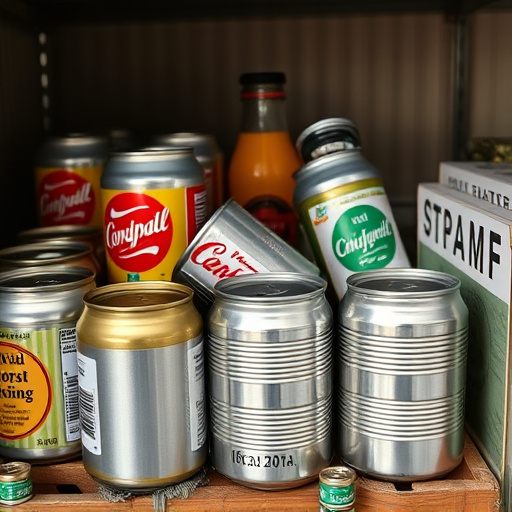Fake household items like custom candies and vinegar bottles offer discreet storage for sensitive materials, but they lack functional features and safety guarantees compared to genuine storage solutions. While aesthetically appealing, these fakes may lead to contamination, pest issues, and structural damage over time, making real storage containers a better choice for practical and long-term use.
Uncover the hidden dangers of covert storage using fake household cleaning products. In today’s world, where creativity often turns to deception, it’s crucial to recognize common items masquerading as necessities. This article delves into the practice of using fake cleaning products as clandestine storage solutions, highlighting potential risks and dangers. By identifying signs and understanding the scope, we can navigate our spaces with greater awareness, ensuring safety and security in our everyday lives.
- Unveiling Common Household Items Used for Covert Storage
- Identifying Signs: Fake Cleaning Products as Storage Solutions
- Potential Risks and Dangers of Using Fake Household Items for Storage
Unveiling Common Household Items Used for Covert Storage
In the realm of covert storage, everyday fake household items often double as ingenious hiding places. From seemingly innocuous kitchen containers to unassuming decorative objects, these items provide a discrete means for stashing sensitive materials or illicit substances. For instance, custom-made faux food items, such as candy or fruit replicas, can serve as perfect vessels for small, valuable objects or even illegal drugs, allowing for easy integration into any household setting.
Furthermore, everyday cleaning products like fake bottles of vinegar or air fresheners can be cleverly utilized as storage solutions. Their familiar and commonly accepted presence in homes makes them ideal for masking the contents within. These fake household items offer a subtle approach to securing personal belongings or addressing unique storage challenges, adding an unexpected layer of complexity to the art of concealment.
Identifying Signs: Fake Cleaning Products as Storage Solutions
Many people turn to creative solutions to maximize storage space in their homes, and it’s no secret that fake household items can seem like an attractive option. From faux plants to artificial candles, these seemingly innocuous items often serve double duty as both decor and storage. However, when it comes to storing actual items, especially smaller objects, using fake products designed solely for aesthetic purposes may not be the best idea.
One of the first signs that a “cleaning product” is actually a facade for storage is its lack of functional features. If a so-called cleaning item doesn’t lather, spray, or perform any cleaning action, it’s likely not meant to clean but rather to hold items like remote controls, jewelry, or office supplies. Additionally, materials used in fake products might not be suitable for storing certain items; plastic containers, for instance, may not be ideal for preserving delicate objects due to their fragility and potential for damage over time.
Potential Risks and Dangers of Using Fake Household Items for Storage
Using fake household items for storage may seem like a cost-effective solution, but it comes with significant potential risks and dangers. These imitation products often lack quality control measures that genuine manufacturers adhere to, leading to uncertainties about their safety and durability. They might contain harmful chemicals or substandard materials that could leach into your food, liquids, or other stored items over time.
Moreover, fake household storage items may not be designed with proper ventilation or water resistance, increasing the risk of mold growth, pest infestation, or damage to your stored goods. These products could also pose a safety hazard in terms of structural integrity, especially when subjected to weight or frequent use. Always prioritize quality and safety by investing in genuine storage solutions from reputable brands.
In light of the above discussions, it’s clear that using fake household cleaning products as storage solutions can pose significant risks. While these items might seem like creative and inexpensive options, they often lack proper safety standards and materials, potentially endangering belongings and health. As we’ve explored, identifying signs of fake products and understanding their potential dangers are crucial steps to securing your space safely. Remember that when it comes to storage, prioritizing quality and safety ensures a secure and peaceful mind.
